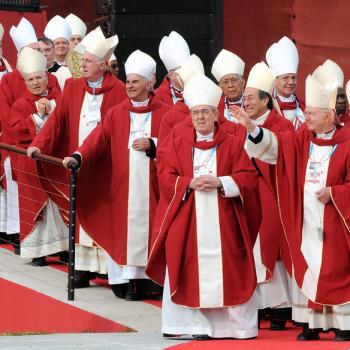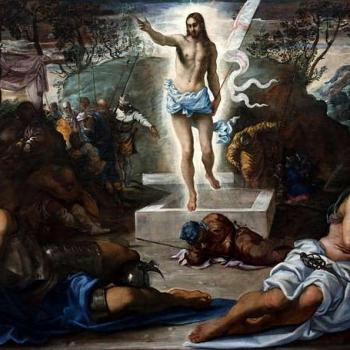Every Riven Thing
God goes, belonging to every riven thing he’s made
sing his being simply by being
the thing it is:
stone and tree and sky,
man who sees and sings and wonders why
God goes. Belonging, to every riven thing he’s made,
means a storm of peace.
Think of the atoms inside the stone.
Think of the man who sits alone
trying to will himself into the stillness where
God goes belonging. To every riven thing he’s made
there is given one shade
shaped exactly to the thing itself:
under the tree a darker tree;
under the man the only man to see
God goes belonging to every riven thing. He’s made
the things that bring him near,
made the mind that makes him go.
A part of what man knows,
apart from what man knows,
God goes belonging to every riven thing he’s made.
From the Christianity Today interview by Josh Jeter:
How did you arrive at your Christian faith?
I was raised in West Texas as a Southern Baptist, in a culture and family so saturated with religion that it never occurred to me there was any alternative until I left. Then it all just evaporated in the blast of modernism and secularism to which I was exposed in college. Or, it didn’t evaporate, exactly, because I never would have called myself an atheist. But religious feeling went underground in me for a couple of decades, to be released occasionally in ways I never really understood or completely credited—in poems, mostly.
Then about 10 years ago I fell into despair. There is no other way to say it, really, nor do those words do anything but hint at the abyss. Whether it was cause or effect, I went through a writing drought unlike anything I had ever known—three years of it. In the midst of this—miraculously, it now seems to me—I fell suddenly and utterly in love with the woman who is now my wife. I still couldn’t write, but the despair was blasted like a husk away from my spirit.
We found ourselves saying little prayers together before dinner. They were almost jokes at first, and then, increasingly, not. We’d been married about eight months when I got a surprise diagnosis of an incurable cancer, and the encroaching darkness demanded that the light I felt burning in me acquire a more definite and durable form. One Sunday morning we wandered into a church. A couple of days later I started to write. I don’t think it’s quite accurate to say that I had a conversion or even a “return” to Christianity. I was just finally able to assent to the faith that had long been latent within me.
You have three vocations: poet, editor of Poetry magazine, and, most recently, spiritual essayist. How did you decide to begin writing spiritual essays?
I’ve always written prose, and I can now see how God’s absence—or, more accurately, my refusal to admit his presence—underlies all of my earlier work (poems as well).
But you’re certainly right to point out a change. My work—prose and poetry—is still full of anguish and even unbelief, but I hope it’s also much more open to simple joy. The theologian Jürgen Moltmann once wrote that all theology, especially a theology of hope, had to be conducted “in earshot of the dying Christ.” Abundance and destitution are both aspects of God—or, more accurately, aspects of our experience of God.













